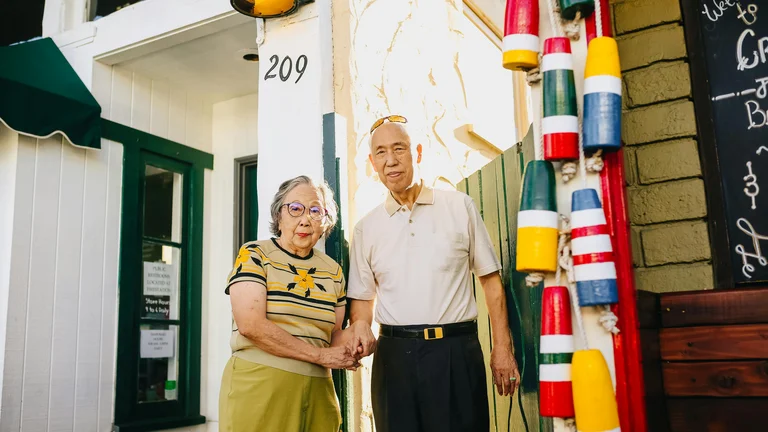K-Drama Characters Who Love Books: An In-Depth Exploration

Korean dramas, commonly known as K-Dramas, have captured global audiences with their intricate storytelling, memorable characters, and cultural nuances. One intriguing motif that frequently appears is a genuine love for books or reading within some characters’ arcs. These book-loving characters often symbolize introspection, wisdom, or a quest for knowledge, giving viewers a lens through which to appreciate not only the narrative but also the culture of reading itself. In this comprehensive analysis, we explore notable K-Drama characters who cherish books, examining their traits, how this passion affects their development, and what it reveals about the shows' themes.
Books in K-Dramas often represent more than leisure; they embody escape, intellectual growth, or connection. Characters who gravitate toward books provide unique insight into the drama's subtext. This detailed study covers characters from various genres, timelines, and narrative functions—bridging literary passion and on-screen storytelling.
Understanding the interplay between these characters and their literary interests requires delving into examples that highlight diverse portrayals of bookishness—from introverted scholars to social connectors who gift books. The following sections dissect several iconic figures, group key traits and motifs, compare portrayals, and analyze implications.
The Intellectual Appeal: Characters Defined by Their Love of Books
Many K-Drama characters who treasure books are portrayed as intellectuals or individuals seeking refuge from their chaotic realities. Typically, these characters are introverted or contemplative, embodying a certain wisdom or depth. For example, in the series "While You Were Sleeping," the character Hong Joo is an uptight yet deeply thoughtful woman often seen reading, symbolizing her search for control and clarity amid supernatural uncertainties. Similarly, Han Ji Eun from "One Spring Night" has scenes showing her reading literature, which subtly underscores her reflective nature and how knowledge shapes her worldview.
A recurring pattern emerges: book-loving characters frequently embody patience, empathy, or hidden strength. Their interaction with books often acts as a narrative device indicating inner worlds richer than their external circumstances suggest. This appeal resonates with viewers who admire intelligence and introspection.
These characters occasionally serve as mentors or catalysts, providing other figures with wisdom through stories or direct advice. Their scholarly aura elevates the emotional stakes, often making them pivotal in resolving conflicts or offering fresh perspectives.
Moreover, the type of books these characters read—classics, poetry, or philosophical texts—contributes layers of meaning. For instance, references to traditional Korean literature or universal classics deepen the cultural context and hint at timeless themes of love, loss, or identity.
Social Connectors: How Book Lovers Build Relationships Through Reading
Beyond solitary reading, K-Drama characters who love books sometimes use literature as social bridges. Their book-related gifts or shared reading experiences become mechanisms to forge and strengthen bonds. Shows like "Because This Is My First Life" feature characters who exchange books, developing intimacy subtly. These interactions demonstrate how literature becomes a medium of communication and emotional connection.
In "Navillera," the protagonist’s passion for poetry becomes a way to relate to other characters across generations, showcasing the timelessness of literature as a connector. Books in these contexts are tools that spark dialogue, empathy, and mutual understanding, enriching the narrative beyond surface interactions.
This communal aspect of book love conveys a hopeful message: despite differences in background or circumstances, shared stories can align diverse individuals. It emphasizes reading not just as a private hobby, but as a shared human experience. The characters’ literary preferences often reflect their identities, values, and emotional states, creating nuanced interactions that deepen the drama’s emotional texture.
Table: Key K-Drama Characters Who Love Books and Their Narrative Roles
| Character | Drama | Book Type | Role of Book Love | Personality Traits |
|---|---|---|---|---|
| Han Seo Jun | "Nevertheless" | Poetry and Graphic Novels | Emotional outlet; connection to others | Rebellious, Sensitive, Introspective |
| Yoo Jung | "Extraordinary You" | Novels and Self-Help Books | Self-awareness; breaking narrative boundaries | Curious, Clever, Defiant |
| Kim Bok Joo | "Weightlifting Fairy Kim Bok Joo" | Romantic Novels | Escape from reality; personal growth symbol | Energetic, Hopeful, Kind |
| Jung Jae Chan | "Extracurricular" | Crime and Mystery Novels | Inspiration for law enforcement; moral compass | Serious, Determined, Analytical |
| Hong Joo | "While You Were Sleeping" | Philosophical and Legal Books | Symbolizes control and order; problem-solving | Responsible, Intelligent, Cautious |
Detailed Character Studies and Their Literary Passions
1. Han Seo Jun in "Nevertheless"
Han Seo Jun’s appreciation for poetry and graphic novels provides a complex portrait of a young man grappling with his emotions and identity. Unlike typical representations of rebellious youth, his literary engagement exposes a sensitive core underneath a tough exterior. His favorite poems often relate to themes of love and pain, mirroring his narrative arc and vulnerability. Through books, Seo Jun finds language to express feelings he suppresses in interpersonal interactions. The series uses his literary interests to humanize him, contrasting societal expectations and personal emotions.
The way Seo Jun reads and discusses these works with others reflects his growth and heightened emotional intelligence. For audiences, his example demonstrates that bookishness transcends stereotypes, intertwining intellect with affectivity.
2. Yoo Jung from "Extraordinary You"
This character’s engagement with novels and self-help books symbolizes her awakening awareness within a meta-narrative. Yoo Jung reads not only for enjoyment but to understand the superficiality of her surroundings as a character trapped in a scripted life. Her reading habit is a device emphasizing her rebel spirit and quest to rewrite her destiny. Books, in this case, act as metaphors for self-empowerment and awakening.
Her eclectic selections—from fantasy novels to motivational manuals—underscore a layered personality eager for growth and freedom. Yoo Jung exemplifies how reading can serve as an act of defiance against fate, aligning literature with personal revolution in storytelling.
3. Kim Bok Joo in "Weightlifting Fairy Kim Bok Joo"
The drama portrays Kim Bok Joo as a youthful, energetic athlete who turns to romantic novels as a form of escapism and emotional exploration. Her consumption of such literature mirrors her own blossoming feelings and desires, paralleling themes in the stories she reads. Unlike other athletic leads in K-Dramas who dismiss softer hobbies, Bok Joo’s love for these novels adds depth, revealing a tender and vulnerable side.
This inclusion suggests that book-loving characters need not conform to rigid archetypes. Bok Joo’s blend of athleticism and literary appreciation broadens the representation of women in K-Dramas, symbolizing multidimensionality and the breaking of gender norms.
4. Jung Jae Chan in "Extracurricular"
In a darker turn, Jung Jae Chan’s fascination with crime and mystery novels propels his motivation to navigate and resolve troubling real-life cases. His reading goes beyond entertainment, influencing his analytical skills and ethical frameworks. Books guide him toward understanding human nature, justice, and moral ambiguity, which are central to the drama’s exploration of youth crime and responsibility.
Jung Jae Chan’s character demonstrates the practical utility of literature in shaping decision-making and career pathways within narratives. His respect for knowledge highlights how bookishness often correlates with critical thinking and moral reflection in K-Dramas.
5. Hong Joo in "While You Were Sleeping"
As a prosecutor exposed to complex legal challenges while battling supernatural phenomena, Hong Joo’s reading of philosophical and legal texts embodies her desire for order and rationality. Her literary habits ground her in pragmatism amid unfolding mysteries, symbolizing a beacon of reason and caution.
This nuanced portrayal conveys that book lovers can embody strength and responsibility rather than mere fantasy or introversion. Hong Joo’s habit enriches the drama by linking intellectual pursuit with real-world problem-solving.
Common Motifs and Themes Among Bookish K-Drama Characters
Analyzing characters who love books reveals recurring motifs that highlight central K-Drama themes such as identity, escape, growth, and connection. These facets emerge prominently:
- Escape and Refuge: Characters use books to retreat from hardships or confusion. This motif offers emotional solace or temporary disconnection from tense realities.
- Self-Discovery: Through reading, characters often embark on personal journeys. Literary exposure catalyzes reflection and eventual transformation.
- Communication and Bonding: Shared reading experiences or gifting books serve as tender social gestures, fostering trust and intimacy.
- Wisdom and Guidance: Books symbolize knowledge and serve as metaphorical guides through plot challenges or dilemmas.
- Challenging Stereotypes: Many book-loving characters defy narrow labels. They encompass complex personalities that embrace both intellectual and emotional facets.
These motifs collectively contribute to the thematic richness of K-Dramas, illustrating the multilayered role books and literature play within character construction and storytelling.
List: Benefits of Featuring Bookish Characters in K-Dramas
Visual and Narrative Symbolism of Books in K-Drama
Books often appear visually in K-Dramas to signify mood, status, or transformation. Scenes with characters immersed in reading convey quiet moments amid frenetic plot movements, offering pacing contrast. Cinematography may focus on close-ups of pages or characters' facial expressions to emphasize connection to text.
Narratively, books introduce metaphorical layers. For example, a character reading a book about freedom while feeling trapped resonates on symbolic levels, enhancing thematic coherence. The choice of genre, author, or language in these books can subtly reference historical, cultural, or philosophical connotations that enrich the drama’s texture.
Step-by-Step Impact: How Book-Loving Characters Shape K-Drama Narratives
Understanding the progression of characters who treasure books helps appreciate their contribution to storytelling:
- Introduction: Their initial depiction often includes reading scenes establishing intellectual traits.
- Character Interaction: Books become mediums in social exchanges, introducing relational dynamics.
- Conflict Resolution: Wisdom from books or inspired insight assists in overcoming challenges.
- Character Growth: Exposure to literature parallels personal transformation.
- Climactic Integration: Literary motifs emerge prominently in plot climaxes or resolutions.
This structure illustrates the multifaceted functions of literary passion within these characters’ arcs, contributing to K-Dramas’ intricate narrative layers.
Case Study: The Role of Books in "Navillera"
"Navillera," a touching drama about friendship across generations, showcases the power of poetry and reading to foster human connection. The elderly protagonist pursues his dream of ballet inspired partly by literature’s beauty and emotional expression. Books in this context embody hope and lifelong learning.
The drama uses poetry readings and quoted verses as motifs reinforcing themes of passion, resilience, and intergenerational understanding. Audience response highlights how incorporating such literary elements enriches emotional depth and relatability.
Table: Comparative Analysis of Book Genres Preferred by Key Characters
| Genre | Example Character | Drama | Symbolic Meaning |
|---|---|---|---|
| Poetry | Han Seo Jun | "Nevertheless" | Emotional complexity; vulnerability |
| Philosophical Texts | Hong Joo | "While You Were Sleeping" | Order, control, rationality |
| Romantic Novels | Kim Bok Joo | "Weightlifting Fairy Kim Bok Joo" | Hope, innocence, emotional growth |
| Crime/Mystery | Jung Jae Chan | "Extracurricular" | Justice, moral inquiry |
| Self-Help | Yoo Jung | "Extraordinary You" | Self-awareness, empowerment |
Exploring the Cultural Dimensions of Reading in K-Dramas
In South Korean culture, education and scholarly pursuits are historically prized, reflecting Confucian influences that emphasize learning as a path to self-cultivation and societal contribution. K-Dramas subtly incorporate this cultural context by weaving characters deeply engaged with books, portraying reading as both an individual and communal virtue.
Moreover, scenes of shared reading or gifting books echo traditional values around respect, etiquette, and connection. Through these portrayals, K-Dramas align with and sometimes challenge contemporary societal attitudes towards reading. For instance, a rebellious youth who loves poetry challenges the stereotype of troubled teens by showing that intellectual curiosity transcends social categories.
Literary references in K-Dramas also introduce audiences to Korean classics or global masterpieces, serving an educational purpose and cultural diplomacy. This enriches the viewer experience, using book-loving characters as cultural ambassadors bridging art, history, and identity.
List: Common Characteristics of K-Drama Book-Loving Characters
Applications of Bookish Traits in Plot Development
Book-loving characters are more than passive readers; they often become active agents shaping plot direction and thematic exploration. Their literary knowledge informs their decisions, enabling clues to be deciphered or moral dilemmas to be resolved. For example, a character referencing a classical narrative can use that knowledge to inspire courage or caution in facing challenges.
Furthermore, the act of reading can symbolize temporal shifts, personal growth milestones, or plot transitions. Scenes of reading or book exchange often precede revelations or turning points, imbuing them with symbolic weight.
Comparing Bookish Characters Across Different K-Drama Genres
The portrayal of literary interest varies with genre. In romantic K-Dramas, books typically highlight emotional layers of love and vulnerability, often symbolizing innocence or longing. In thrillers or crime dramas, reading serves practical and intellectual functions, embodying problem-solving skills or ethical reflection. Historical dramas might present book lovers as scholars tied to traditional culture and Confucian ideals, reflecting period-specific values.
This diversity indicates how reading functions flexibly within K-Drama storytelling, adapting to themes and tone while preserving core traits associated with bookish characters.
List: Tips for Writers to Incorporate Book-Loving Characters Effectively
Final Reflections on the Significance of Books in K-Dramas
In sum, characters with a passion for books enrich K-Dramas thematically and narratively. They provide windows into inner psyches, serve as conduits for cultural and philosophical values, and enhance emotional resonance. Whether through solitary reading or social sharing, their interactions with literature reveal layers of meaning that engage viewers intellectually and emotionally.
Their significance extends beyond simple hobbies, acting as devices that reflect personal struggles, hopes, and transformations. Through these portrayals, K-Dramas acknowledge and celebrate the multifaceted role of reading in human experience, making book lovers compelling figures who embody the timeless power of stories.
This comprehensive exploration aims to deepen appreciation for this literary motif in K-Dramas and inspires further reflection on how storytelling itself is, at its heart, a shared narrative between readers, characters, and audiences worldwide.
FAQ - K-Drama Characters Who Love Books
Why do K-Drama characters often have a love for books?
K-Drama characters who love books often symbolize introspection, intellectual depth, and emotional growth. Reading serves as a narrative tool for character development, expressing their internal worlds or connecting them with others.
How do books influence character development in K-Dramas?
Books often catalyze self-discovery, coping mechanisms, and moral reasoning. Characters' reading habits can trigger reflection, problem-solving, or emotional transformation, enriching their narrative arcs.
Are there common personality traits among book-loving K-Drama characters?
Yes, these characters commonly exhibit introspection, empathy, patience, and sometimes introversion. They are often portrayed as thoughtful and emotionally nuanced individuals.
Do these characters always read the same types of books?
No, the genres vary widely—from poetry and philosophy to romance and crime novels—each choice aligning with the character’s personality and the drama’s themes.
How is the act of reading visually represented in K-Dramas?
Reading scenes often use close-ups and calm pacing to emphasize quiet reflection or pivotal moments, employing books as symbols for mood, status, or thematic depth.
Can the portrayal of book lovers challenge stereotypes in K-Dramas?
Certainly. Many characters defy the shy or nerdy stereotype by blending intellectual hobbies with diverse personalities, such as athletes or rebellious youths.
Are books used only as props or do they hold narrative significance?
Books frequently hold substantial narrative weight, driving plot points, inspiring decisions, and symbolizing broader themes within the story.
K-Drama characters who love books often embody introspection and emotional depth, using literature as a means of self-discovery and connection. Their reading habits enrich narrative themes across genres, highlighting intellectual growth, cultural values, and complex relationships, making them vital to the storytelling fabric of K-Dramas.
K-Drama characters who love books provide a profound avenue for exploring themes of identity, emotion, and connection. Their engagement with literature enriches storytelling by adding layers of introspection, cultural depth, and meaningful relationships. These characters challenge stereotypes and reflect a valued cultural appreciation for knowledge and reflection in Korean society. Through their literary passions, they invite viewers to witness the transformative power of stories within and beyond the screen.






